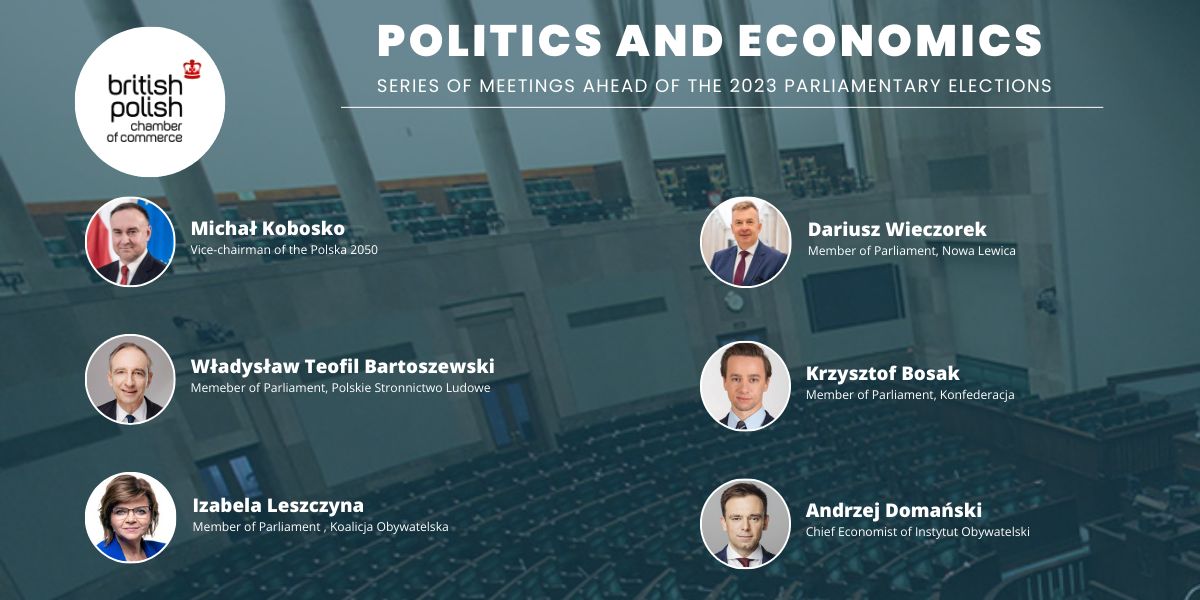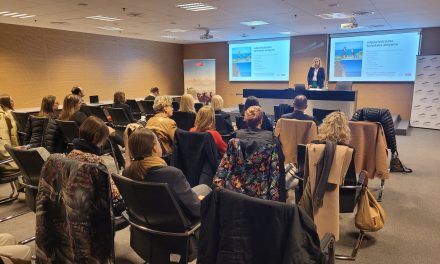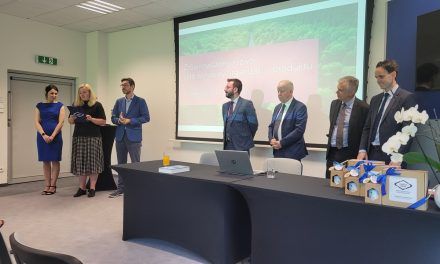In the run-up to Poland’s parliamentary elections to be held on Sunday, 15 October, the BPCC held a series of meetings with parties’ economic spokespersons.
The meetings were organised only for BPCC member firms. The chamber invited all political parties to share their plans for economy. Representatives who kindly accepted our invite were, in chronological order of the meetings: Michał Kobosko representing Trzecia Droga, Polska 2050; Dariusz Wieczorek representing Nowa Lewica; Władysław Teofil Bartoszewski representing Trzecia Droga, PSL; Krzysztof Bosak representing Konfederacja and Izabela Leszczyna and Andrzej Domański representing Koalicja Obywatelska. Each of the parties’ representatives were asked the same set of questions, addressing regulatory stability for business, macroeconomic issues, ESG and the labour market.
The first set of questions to our guests concerned regulatory stability for business in Poland. All of our interlocutors highlighted their positions on how they would like to assure more stability and predictability of the regulatory process. The majority of the discussion, however, focused on the parties’ approach towards the EU, macroeconomics including how to tackle inflation, the labour market and transformation of the energy sector.
Each of our interlocutors underlined the importance of better regulatory impact assessment, proper consultations and more time to prepare for new legislation. They agreed that Poland’s regulatory environment must be predictable and stable if foreign investors are to continue to perceive the country as a good investment location.
Also discussed was support for R&D; the conclusion from all meetings was that if Poland is to profit from the development of innovation, state support for R&D should be depoliticised and based on factual assessment of benefits for the economy.
The majority of representatives of political parties that we hosted also spoke in favour of accelerating Poland’s journey to net zero, emphasising the need for more investment in renewables and nuclear energy, unblocking EU funds and attracting private capital.
We would like to thank our guests for their time, and our members for their participation.
If you are interested in a more detailed summary of the meetings, please contact BPCC Team directly.

































